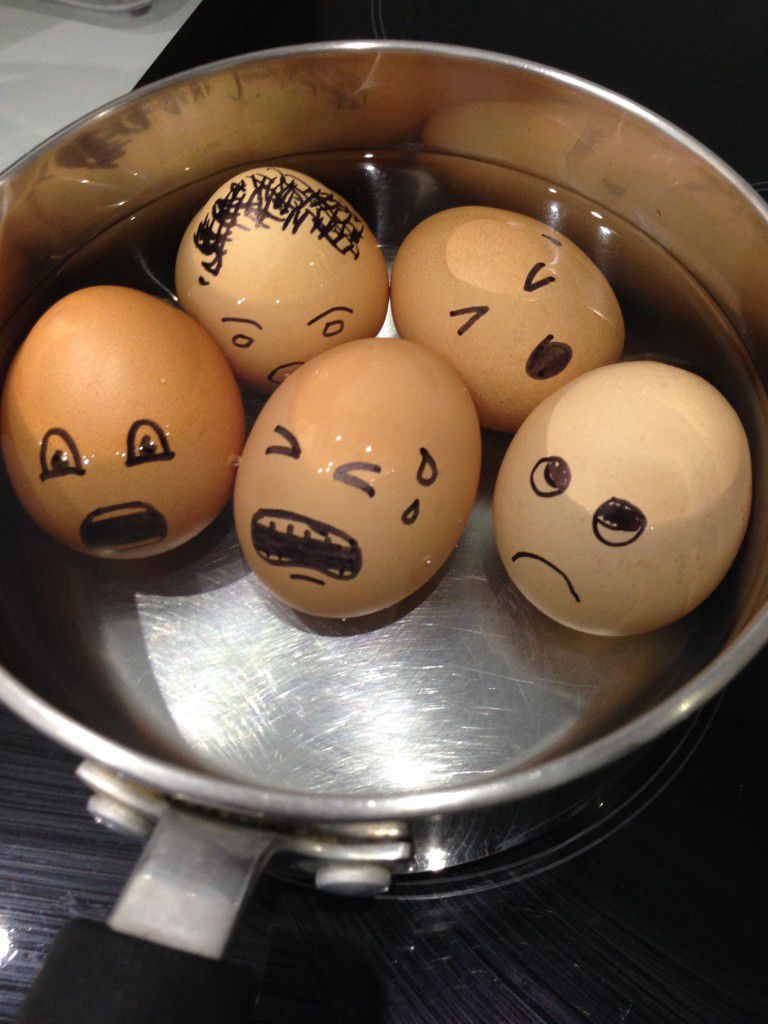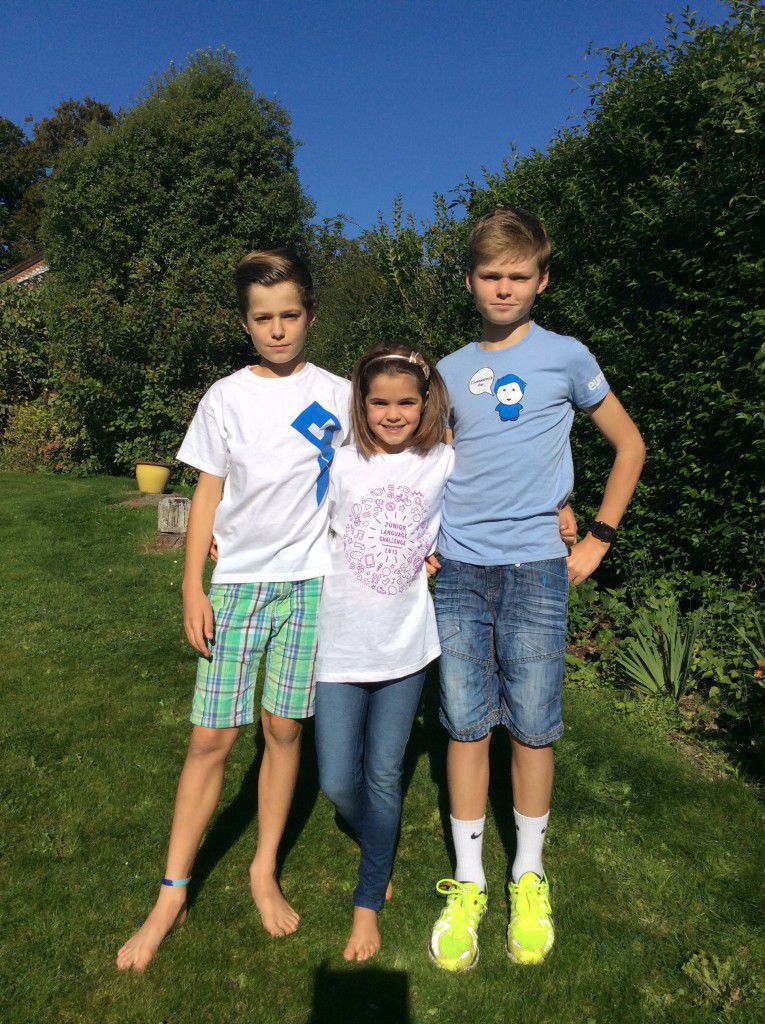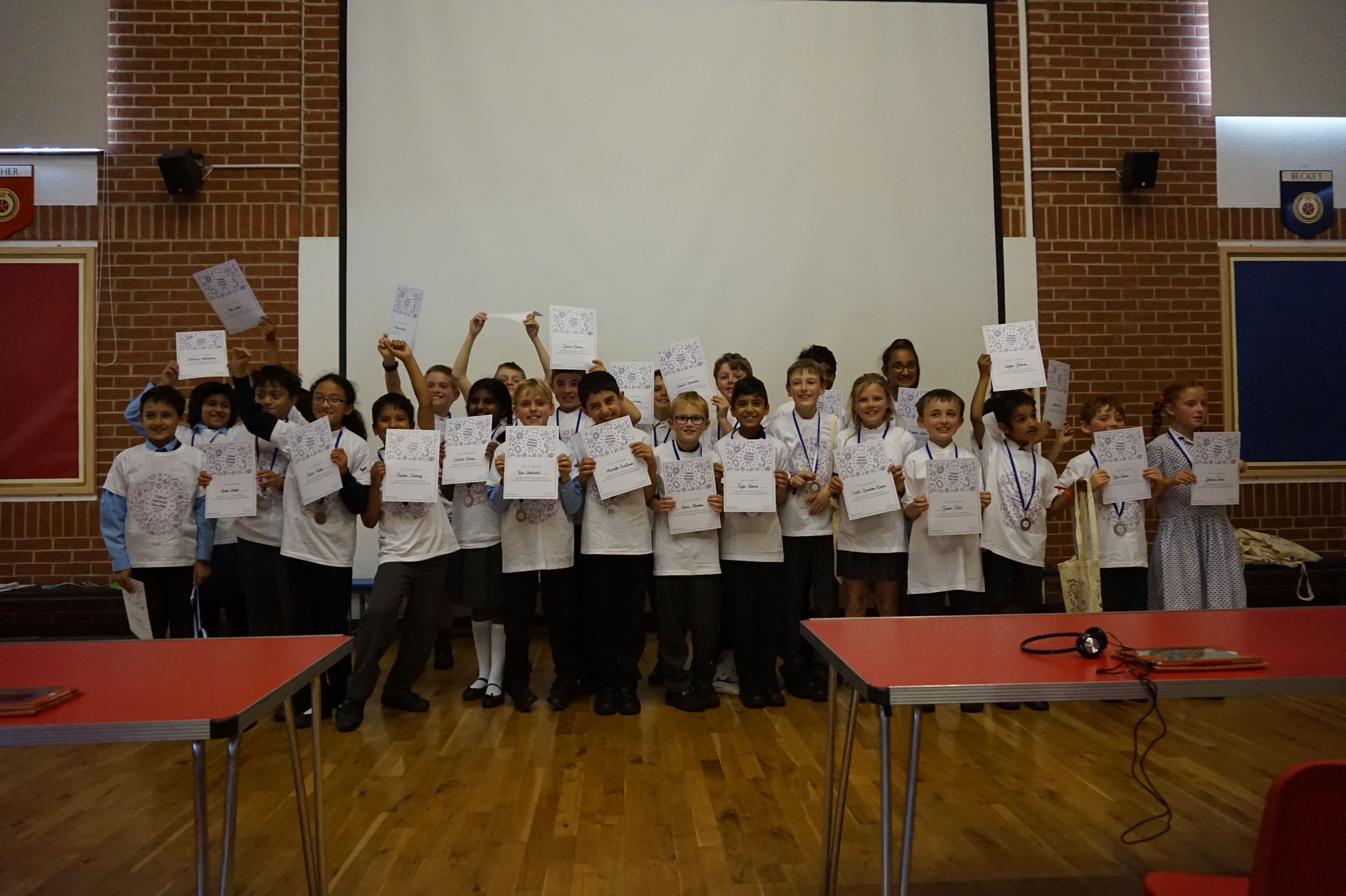The Language of Chocolate
Ah chocolate, that little sinful delight that you can pretty much find in every corner of the globe. Eat it, drink it, wear it or even play with it, you simply can’t get away from it. Since it’s National Chocolate Week I was curious to find out where the word ‘chocolate’ actually comes from.
Unfortunately there isn’t really a concrete answer that states its exact origins. Some believe it comes from the Aztec (Nahuatl) word ‘chocolatl‘ which referred to a substance produced from the seeds of the cacau tree. Others believe the Spanish coined it from the Mayan word ‘chocol‘ (hot) and the Aztec word ‘atl‘ (water) when early explorers came across a beverage made from the seeds.
It only goes to show how far back the beginnings of chocolate as we know it are embedded into our history. If you’re looking for interesting ways to use the word chocolate in other languages, here are a few to start you off with.

If you ever come across something or someone that you find utterly useless, then the expression ‘as much use as a chocolate teapot‘ might come in handy. Science has even proven how useless a chocolate teapot really is.
In French, you might use the phrase ‘tablettes de chocolat‘ to refer to a particularly svelte and toned looking man. There are some things about the French language that I just love.
‘Es el chocolate del loro‘ in Spanish literally translates to ‘the parrot’s chocolate’, but is in fact referring to the insignificance of a small amount of money when compared to a much larger amount. I’m still trying to work out where the parrot comes into this, though.
And if you find yourself in a particularly confusing situation that defies all sense of logic and cohesion, don’t hesitate to swap the English idiom ‘it’s all Greek to me’ for the Dutch ‘daar kan ik geen chocola van maken’ which translates to ‘I can’t make chocolate of that’.
Do you know any other chocolate based expressions? Do let us know! I’m sure they’ll be positively delicious…
Safia
Lost, drowned, in a shirt… how do you like your eggs?
Happy World Egg Day!
English is quite a boring language when it comes to eggs. We boil them, scramble them, poach them, fry them. All very ordinary.
Which is why we were delighted to discover that other languages are more dramatic in their approach to eggs!
Over to Italy:
For Italians, poached eggs are literally ‘eggs in a shirt’ – ‘le uova in camicia’ – possibly because the frilly poached egg white looks like the sleeves of a loose blouse.
Alternatively (but still quite theatrically), you can call them ‘le uova affogate’ (literally ‘drowned eggs’). Poor old eggs!
And now to Germany:
Maybe it’s the same idea of drowning that makes Germans call their poached eggs ‘verlorene Eier’ – ‘lost eggs’. The eggs, like sailors lost at sea, drown quietly in the saucepan.
Or, if it’s a fried egg you’re after, the Germans have a pretty expression for that too: ‘Speigeleier’, literally ‘mirror eggs’. Can anyone tell us why..?
Bullseye!
In Italian, Slovak and Czech (to name but a few), the fried egg is the ‘bullseye egg’- because, of course, it resembles a bullseye (or a porthole, which is the same word): ‘le uova all’occhio di bue’ (Italian), ‘volské oko’ (Slovak), ‘volská oka’ (Czech).
Eyes in a pan?
A similar idea, though slightly more graphic, applies in Bulgarian and Slovenian where the fried eggs (‘яйца на очи’ and ‘jajce na oko’ respectively) translate as ‘eggs eye-style’! So next time you fry an egg, you may choose to remember this vocabulary by imagining a big eyeball staring up at your from the plate… OR you may choose to stick to the safe, if rather boring, English equivalent.
Got any other interesting egg-related vocabulary? Let us know!
How idioms help you make a language your own
When learning a new language we are happy to pass every little milestone: the first time you address a native speaker, the first conversation… All these achievements mean the world to us, they are the reward of our continuous learning. When becoming fluent in a language you can express almost everything you want to say, but there is still that one little step further, that gives your words something that make them yours. Something that gives them personality – and this can be achieved through the use of expressions and idioms.
Many idioms make no sense even if we know the meaning of each individual word! But some of them are easy to figure out, like for example ‘it takes two to tango’, meaning an action or activity that involves participation from more than one person.
To me they are very interesting and it gives me insight into the British culture. Not to mention the fun of using them in a conversation, possibly wrong sometimes but nevertheless entertaining! That is how I learned that when you’re ill you can be ‘a bit under the weather’ or to not take someone seriously is ‘taking it with a grain of salt’.
Sometimes expressions are international and can be directly translated through more languages without losing their meaning, like ‘a picture paints a thousand words’.
Learning the academic language is certainly the most important aspect when embarking on such a challenging journey. However, informal words, idioms, expressions and slang will bring you closer to the people you share the language with. It will make any conversation more pleasant and will allow you to put your own stamp on the vocabulary you are using.
How do I learn idioms?
The best way to find out which are the most used expressions, or the most popular ones, is to ask a native speaker, read local magazines and newspapers or watch local TV shows. My personal preference is to spot them in conversations and ask people what they mean.
For example, last week I learnt the expression ‘get the bit between the teeth’ from my boss. Which he also kindly explained (possibly because my face indicated that I had no clue what he was on about). The bit is a piece that goes inside a horse’s mouth and pushes against its soft parts, which causes it to turn. When the horse gets it between the teeth he takes control over from the rider and can’t be stopped. Pretty interesting, huh?
What are some funny or unusual idioms in your language?
Ioana
Arabic: are you up for the challenge too?
After seeing how amazing our Junior Language Challenge semi-finalists were at learning Mandarin, we’ve set our 33 finalists the new challenge of learning… Arabic.
Over 250 million people speak Arabic, across 22 countries. There are a number of different dialects within Arabic, including Moroccan, Classical, Lebanese, Gulf and Egyptian. Modern Standard Arabic is understood across the Arab world, and is used widely across different publications.
Is Arabic as different to English as it looks?
There are several similarities between Arabic and English:
- The punctuation marks are used in the same way – however, in Arabic these can look very different; the question mark in Arabic is reversed, compared to the English way of writing a question mark.
- There are some Arabic words that have contributed to the English language, such as succar, which is ‘sugar’ in English.
The differences between English and Arabic make the language rather difficult to learn.
- Arabic letters look completely different to the English alphabet.
- These letters are also written right to left, instead of left to right. This means that the front of the book in Arabic would be considered the back in English.
- Sentence structures also differ to English, with the adjectives coming after the noun. For example, we would say the ‘blue car’, whereas in Arabic it would be ‘car blue’.
- Unlike English, Arabic only has 3 vowels and these have differentiations. Many words in Arabic start with a consonant followed by another consonant, and again like vowels, these have differentiations too. Another difference is that Arabic doesn’t have any capital letters; instead they use quotation marks to emphasise letters instead.
Although Arabic may seem like a difficult language to learn, it is one of the eight most spoken languages in the world. Hopefully with enough practice before the Junior Language Challenge, our finalists won’t be thinking ‘Ana La Afham’ (I don’t understand) or ‘Annajdah’ (help)! I am sure our finalists will be just as fabulous at Arabic, as they were with Portuguese and Mandarin. If you’re going to the Language Show on Friday 16th October, and you’d like to see how great our finalists are at learning Arabic, come and find us in room 3 (level 3).
And if you’d like to learn Arabic yourself, you can download our uTalk app to get started for free!
Alex






